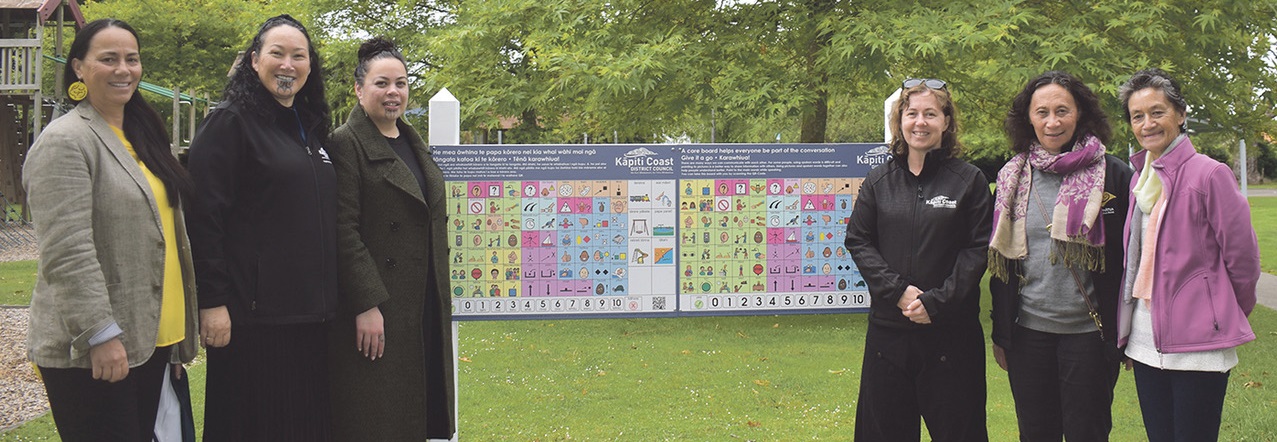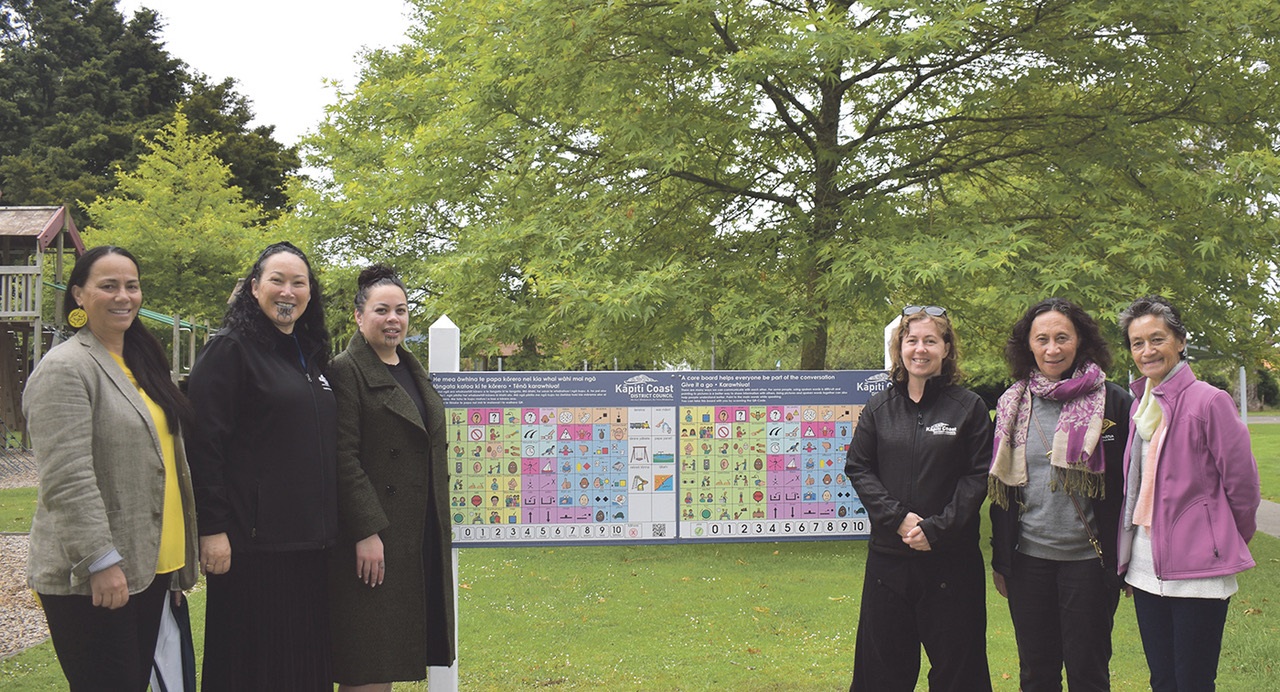
Neuro-diverse tamariki who don’t speak are being encouraged to play in public spaces via new communication boards.
The first of a series of seven boards throughout Kāpiti Coast was unveiled at Haruātai Park in Ōtaki on November 30. On hand were representatives of Kāpiti Coast District Council and Ngā Hapū o Ōtaki, who collaborated on the project that includes information in te reo Māori.

At the unveiling of the bi-lingual signs at Haruātai Park on November 30 were, from left, Kirsten Hapeta of Ngā Hapū o Ōtaki, KCDC Iwi Partnership group manager Deanna Rudd, team group manager Hara Adams, KCDC play projects coordinator Cat Wyle, Te Kura Kaupapa Māori o Te Rito tumuaki Heni Wirihana Te Rai, and Ngā Hapū o Ōtaki chair Denise Hapeta.
Photo Ōtaki Today
The council’s play projects coordinator, Cat Wylde, says the communication boards are part of a process to make local playgrounds accessible for all abilities.
“While the boards include symbols for yes/no and counting numbers, there are additional symbols for running and jumping, and stand-out pieces of equipment such as slides.”
Heni Wirihana Te Rei, tumuaki of Te Kura Kaupapa Māori o Te Rito in Ōtaki, says the boards ensure the communication needs of neuro-diverse tamariki and their whānau in immersion language environments are met.
“We’re really pleased to see the first of these signs installed and look forward to more being rolled out across Ōtaki and the wider district soon.”
Ngā Hapū o Ōtaki chair Denise Hapeta says the boards support Ngā Hapū o Ōtaki’s vision – Kia Ukaipō Te Reo Māori ki Ōtaki – for Ōtaki to be officially recognised as a bilingual town.
The boards include a QR code for uploading the communication tools to digital devices, allowing families to use the tools in other parks and public spaces throughout Kāpiti.
The Haruātai Park boards are the first to be installed, with the all-abilities Lorna Irene Drive Reserve playground in Raumati South to follow soon, making the playground fully accessible, not just physically accessible. More boards are planned in or near playgrounds at Aorangi Road Reserve, Mazengarb Reserve, and Maclean Park (Paraparaumu), Marine Gardens (Raumati Beach) and Campbell Park (Paekākāriki).
The project began in Kāpiti after Cat Wylde saw similar boards being used in Tairāwhiti Gisborne.
She says the project sought advice from speech language therapist Kristina Pinto and TalkLink Trust, and engaged with the council’s Disability Advisory Group, a mana whenua translator, local speech therapist Sarah Courtnage, and parents of non-speaking rangatahi Rebekah Corlett and Nicola Stoddard-Edmonds.
Rebekah, who is also on the Disability Advisory Group, says communication is a human right, and play is an integral part of growing up.
“The communication boards are a form of AAC (Augmentative and Alternative Communication) that non-speaking people use to communicate.”
OTHER STORIES

